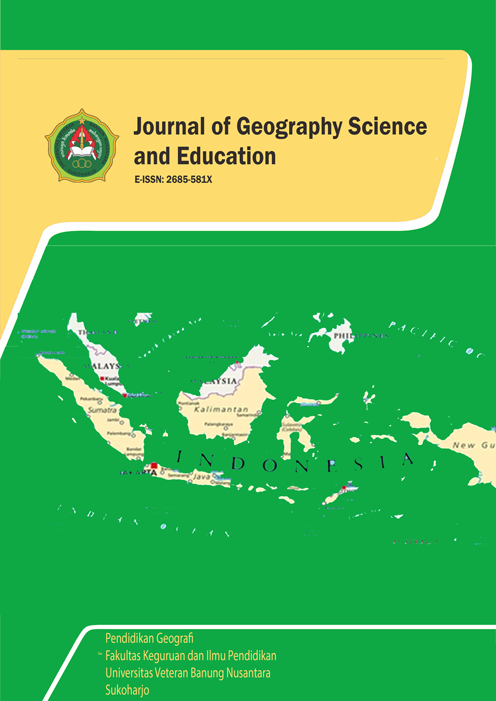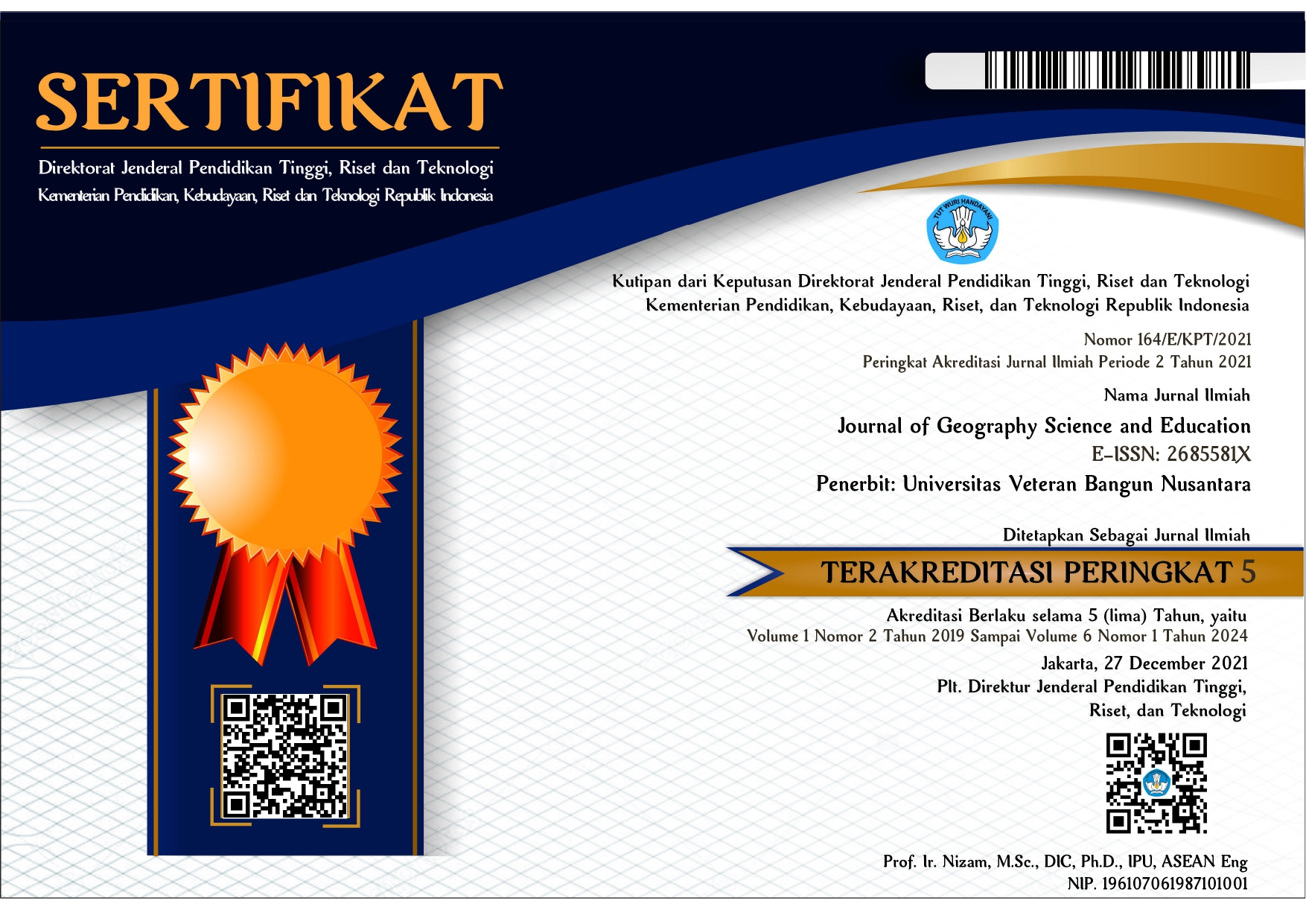Development of Kalipasang Tourism as Sustainable Ecotourism at the Kopeng Resort, Mount Merbabu National Park
DOI:
https://doi.org/10.32585/jgse.v5i1.3501Keywords:
Ecotourism, Sustainable Development, Merbabu National ParkAbstract
Kalipasang is one of the tours in the Kopeng Resort area which has the appeal of pine stands and campgrounds. This tour is part of the Kopeng Resort which is in the Mount Merbabu National Park area which has been extensively developed. However, good tourism is tourism that can boost the economy, have benefits for the community, and maintain the environment. Therefore, the purpose of this research is to find out the appropriate strategies to do so that Kalipasang tourism can be optimal as a sustainable ecotourism. The data collection method was carried out by means of field observations and interviews. The data processing method uses an analysis of the basic principles of ecotourism, IFAS and EFAS, SWOT, and sustainable ecotourism modelling. The results of this study indicate that the strategy for developing Kalipasang tourism as a sustainable ecotourism can be seen in 3 aspects, namely economic, social and environmental. From an economic aspect, it is necessary to improve facilities, carry out promotions, and make ticket prices competitive. Meanwhile, from a social aspect, it is necessary to have community participation in tourism development, efforts to educate tourists, and involve stakeholders. Meanwhile, in terms of environmental aspects, efforts to conserve plants or animals and good waste management are needed. With the combination of these three aspects, Kalipasang tourism as sustainable ecotourism can be developed.
Downloads
References
Abdullah, Z., S. S. Arifin, dan M. R. Syukri. 2021. Penatan Kawasan Wisata Torosiaje Serumpun di Kabupaten Pohuwato Dengan Pendekatan Arsitektur Ekologi. Journal of Architecture. 3(2): 33 – 43.
Adriani, Hadi, dan Nurisjah. 2016. Perencanaan Lanskap Kawasan Wisata Berkelanjutan di Kecamatan Cisarua, Kabupaten Bogor. Jurnal Lanskap Indonesia. 8(2): 53 – 69.
Asyari, A. 2018. Inventarisasi Praktik Inovatif dalam Pendidikan untuk Pembangunan Berkelanjutan. Jurnal Kajian dan Penelitian Pendidikan Islam. 12(2): 193 – 202.
Asy’ari, R., R. D. Dienaputra, A. Nugraha, R. Tahir, C. U. Rakhman, dan R. R. Putra. 2021. Kajian Konsep Ekowisata Berbasis Masyarakat Dalam Menunjang Pengembangan Pariwisata: Sebuah Studi Literatur. Pariwisata Budaya: Jurnal Ilmiah Pariwisata Agama dan Budaya. 6(1): 9 – 19.
Banjarnahor, A., R., M. S. E. Revida, S. Purba, B. Purba, J. S. Nasrullah, I. M. Murdana, E. S. Harizahayu, dan U. T. Handiman. 2021. Strategi Bisnis Pariwisata. Yayasan Kita Menulis: Medan.
Hapsoro, N. A. dan K. Bangun. 2020. Perkembangan Pembangunan Berkelanjutan Dilihat dari Aspek Ekonomi di Indonesia. Jurnal Arsitektur. 3(2): 88 – 96.
Pramono, S., I. Ahmad, dan R. I. Borman. 2020. Analisis Potensi dan Strategi Penembaan Ekowisata Daerah Penyanga Taman Nasional Way Kambas. Jurnal Teknologi dan Sistem Informasi. 1(1): 57 – 67.
Silvandi, G. O. dan S. Mandalia. 2021. Pengembangan Taman Margasatwa dan Budaya Kinantan dengan Menerapkan Aspek Pariwisata 3S (Something to see, something to do, something to buy). I-tourism. 2(2): 69 – 81.
Widiyanto, Farliana, N., dan Raeni. 2019. Pengembangan Ekowisata Berbasis Masyarakat di Pulau TIban, Desa Kartikajaya, Patebon Kendal. Seminar Nasional Kolaborasi Pengabdian Kepada Masyarakat UNDIP-UNNES 2019, 252–259.
Yonatan, D., I. P. Setiadi, dan K. B. S. Rompas. 2021. Rencana Pelarangan Penggunaan Air Tanah di DKI Jakarta: Benturan antara Kepentingan Pemerintah Dengan Hak Masyarakat. Jurnal Legislatif. 5(1): 48 – 67.
Downloads
Additional Files
Published
How to Cite
Issue
Section
License
Authors who publish with the Journal of Geography Science and Education agree to the following terms:
- Authors retain copyright and grant the journal the right of first publication with the work simultaneously licensed under a Creative Commons Attribution License (CC BY-SA 4.0) that allows others to share the work with an acknowledgment of the work's authorship and initial publication in this journal.
- Authors are able to enter into separate, additional contractual arrangements for the non-exclusive distribution of the journal's published version of the work (e.g., post it to an institutional repository or publish it in a book), with an acknowledgment of its initial publication in this journal.
- Authors are permitted and encouraged to post their work online (e.g., in institutional repositories or on their website) prior to and during the submission process, as it can lead to productive exchanges, as well as earlier and greater citation of published work.






